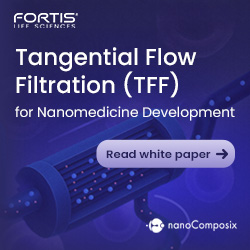Cellular Biomedicine Group Approved to Commence Phase I Trial
Cellular Biomedicine Group Approved to Commence Phase I Trial Cellular Biomedicine Group Inc. (CBMG) recently announced the approval and commencement of patient enrollment in China for its CARD-1 (CAR-T Against DLBCL) Phase I clinical trial utilizing its optimized proprietary C-CAR011 construct of CD19 chimeric antigen receptor T-cell (CAR-T) therapy for the treatment of patients with refractory Diffuse Large B-cell Lymphoma (DLBCL). The CARD-1 trial has begun enrollment with final data expected to be available in the second half of 2017. Based on the CARD-1 results, CBMG expects to initiate a larger Phase II clinical trial as soon as practicable.
“Our CARD-1 trial represents the first CBMG-sponsored clinical trial after CBMG’s acquisition of its CAR-T technology and data from the PLA General Hospital (PLAGH, also known as 301 Hospital) in Beijing. We are proud of this major corporate milestone, where CBMG has taken existing technology and improved it with proprietary optimization and initiated new clinical trials in China,” said Tony (Bizuo) Liu, Chief Executive Officer of CBMG. “We believe we are one of the very few companies that uniquely possesses internal viral vector production and transduction capabilities within our own integrated GMP facility. This allows CBMG to move quickly and efficiently from R&D to manufacturing CAR-T cells for clinical use.”
According to a recent large, multi-cohort dataset analysis, patients with refractory DLBCL have clinical response rates of only 20%-30% with a median overall survival of approximately 6 months. These poor refractory DLBCL patient outcomes represent a significant unmet medical need. CBMG’s CARD-1 Phase I dose-escalation trial will use the traditional 3×3 design to evaluate the safety, efficacy, and persistence of C-CAR011 in refractory DLBCL patients.
“DLBCL is the largest subtype of Non-Hodgkin Lymphoma (NHL), and those refractory patients whose treatment has failed have limited options and a very poor prognosis compared to relapsed patients who had previously responded to treatment,” said Dr. Jianyong Li from Jiangsu Provincial People’s Hospital in Nanjing China, the Principal Investigator for the CARD-1 trial. “I am excited to be able to participate in the trial of C-CAR011, which may someday provide a treatment option for these refractory patients.
“We are very excited as CARD-1 represents the first of a planned series of clinical trials utilizing CBMG’s optimized CAR-T drug candidates,” said Dr. Yihong Yao, Chief Scientific Officer of CBMG. “We look forward to announcing additional trials and CAR-T candidates in the future.”
CARD-1 is a Phase I single-site, single-arm dose-escalating trial consisting of three patient cohorts using escalating C-CAR011 cell dosing levels with three patients in each cohort. The primary end points are Dose-Limiting Toxicity (DLT) and Treatment Emergent Adverse Events (TEAE). Secondary endpoints will measure Overall Response Rate (Complete plus Partial Responses) at 4 weeks and 12 weeks and Disease Control Rate (Complete plus Partial Responses plus Stable Disease) at 12 weeks according to the International Working Group (IWG) revised criteria. The trial summary is registered with clinicaltrials.gov under the number NCT02976857.
The trial will be conducted by Dr. Jianyong Li at the Jiangsu Provincial People’s Hospital in Nanjing China. The Jiangsu Provincial People’s Hospital (also known as the First Affiliated Hospital of Nanjing Medical University, Jiangsu Clinical Medicine Research Institute and the Red Cross Hospital of Jiangsu) was founded in 1936 and performs medical treatment, provides education, and conducts advanced research. The hospital has 3,000 beds and over 4,000 employees with total floor space of 3 million square feet covering 50 acres. The Department of Clinical Medicine of Nanjing Medical University is located inside the hospital, offering clinical medicine doctoral degree and postdoctoral research programs, with 45 teaching and research sections and more than 200 professors. The hospital maintains cooperative relationships with other research hospitals and laboratories in countries such as the US, Japan, Canada, Australia, and Italy.
CBMG’s proprietary anti-CD19 chimeric antigen receptor T-cell (CAR-T) construct represents advancement over CBMG’s prior CBM-C19.1 construct. C-CAR011 is entirely engineered and manufactured in CBMG’s own GMP manufacturing facility in China.
Diffuse Large B-Cell Lymphoma (DLBCL) is the most common form of Non-Hodgkin Lymphoma (NHL) with DLBCL representing approximately 30% of newly diagnosed NHL cases in the US and an even higher percentage of newly diagnosed NHL cases in China. DLBCL is an aggressive form of lymphoma that advances quickly and occurs in both men and women although slightly more common in men. The incidence of DLBCL increases with age with most patients over the age of 60. The current treatment options include chemotherapy, anti-CD20 targeted therapy, radiation, and stem cell transplantation. However, for patients with refractory DLBCL (failed to respond to treatment) the poor clinical response rates of 20%-30% with median overall survival of approximately 6 months represents a significant unmet medical need.
Cellular Biomedicine Group, Inc. develops proprietary cell therapies for the treatment of cancer and degenerative diseases. Our immuno-oncology and stem cell projects are the result of research and development by CBMG’s scientists and clinicians from both China and the US. Our GMP facilities in China, consisting of 12 independent cell production lines, are designed and managed according to both China and US GMP standards. For more information, visit visit www.cellbiomedgroup.com.
Total Page Views: 1693










